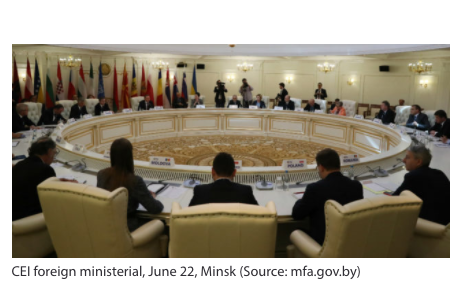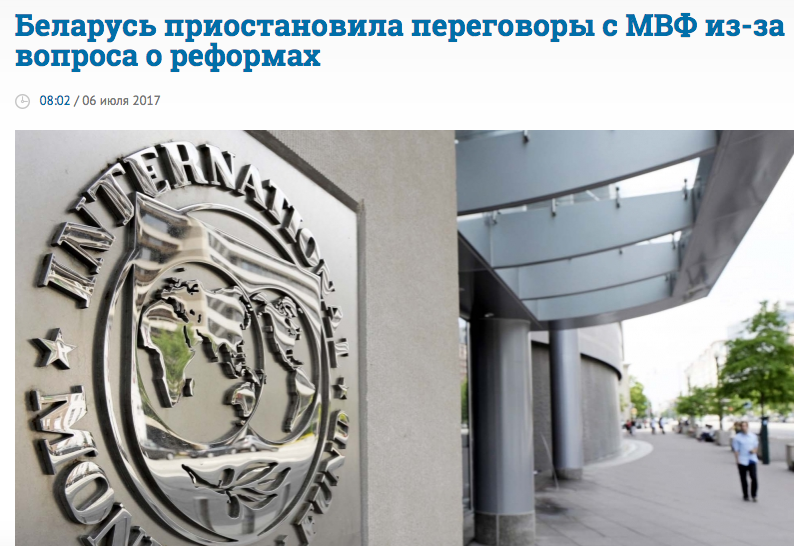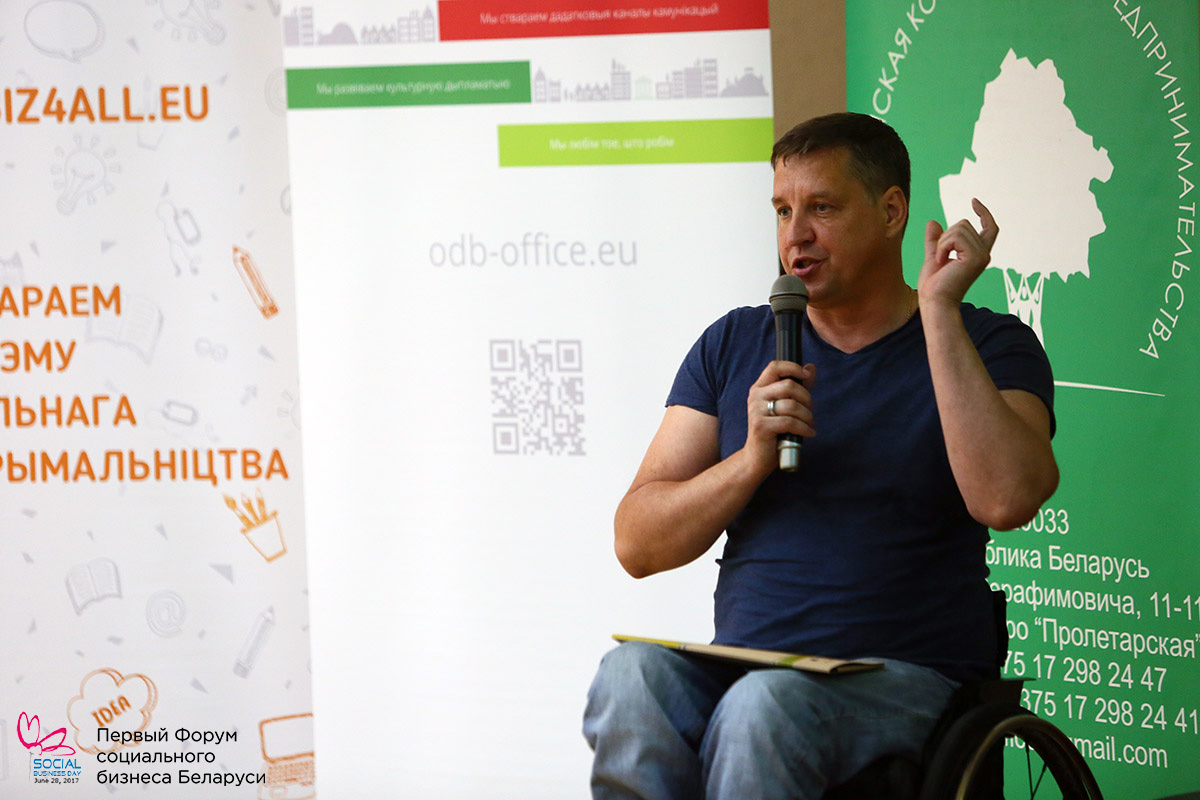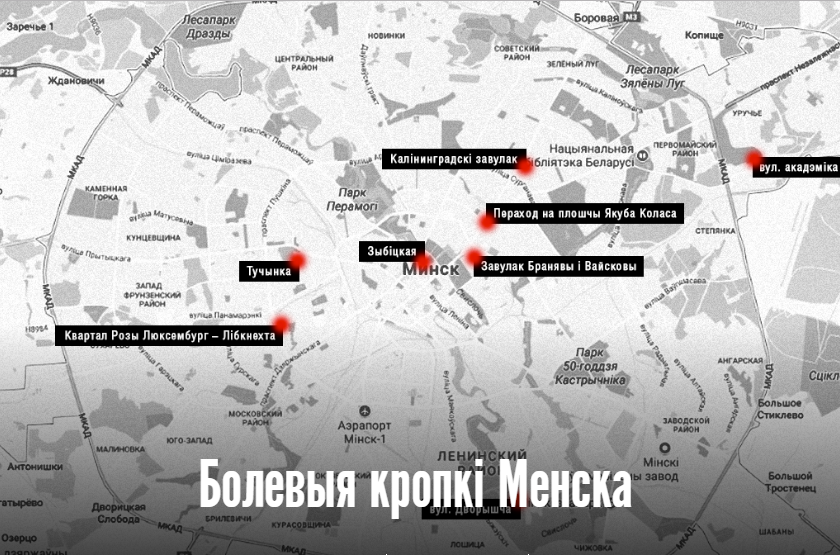Alexievich’s third try, think tanks’ life, the Central European Initiative – digest of Belarusian analytics
CET releases analysis of the sector of Belarusian human rights organisations. Arseni Sivitsky dissects reasons for Belarus’ heavy rearmament with Russian help. Grigory Ioffe analyzes Svetlana Aleksievich’s public speaking. Economist Irina Tochitskaya: Belarus falls in a slow growth trap. Belarus in Focus: Minsk steps back to international and public pressure over the White Legion case.
Natalia Ryabova sums up key trends for Belarusian independent think tanks. Liberal Club presents a study on how to stimulate the development of philanthropy and CSR in Belarus. Economist Dmitri Kruk believes that Belarus is ten years behind without reforms.
Comfortable Trap With a View to Growth – The orientation to the Russian market costs much for the Belarusian economy and the population. Over the past 18 years, the share of Belarusian producers in world exports has been steadily declining. Irina Tochitskaya, IPM Research Center, states that the country is now trapped in ‘slow growth’. Belarus should decide: to get out of it or to put up with the role of an outsider.
Minsk Steps Back to International And Public Pressure Over White Legion Case – Belarus in Focus experts consider that in the White Legion case is the Belarusian authorities’ demonstration of greater adaptability and reduction of the repression-liberalization cycle in the domestic policy in order to retain positive trend in relations with the EU. Nevertheless, the White Legion case has not been closed yet.
Think Tanks’ Life Will Not Become Easier in 2017 – Natalia Ryabova, SYMPA/BIPART director highlights the key trends emerged in 2016 for the Belarusian independent think tanks: cooperation with state institutions and the media as well as the specialization. In the short term, the financial conditions of most think tanks may deteriorate due to a reduction in donor funding, from which they remain highly dependent.
How to Stimulate the Development of Philanthropy and CSR in Belarus. Business View – The Liberal Club presents a study based on a survey of 12 Belarusian business companies. One of the key findings is that for the last 5 years the practice of philanthropy/CSR in Belarus has become broader and more systematic. At the same time, the Belarusian stakeholders still do not have a single approach to the key definitions of sponsorship and CSR.
Belarus and the Central European Initiative: Reading Beyond the Headlines – Yauheni Preiherman analyzes results of the recent foreign ministers’ meeting of the Central European Initiative in Minsk Belarus actively promoted itself as neutral ground for international conflict resolution negotiations. Such a neutrality-oriented identity helps the country hedge against the possibility of being dragged into political and military confrontation against its will.

Belarusian Human Rights Defenders’ View On Human Rights Activity And Questions Of Cooperation Between Belarusian Human Rights Organizations – This is a new research of the Center for European Transformation (CET) on Belarusian human rights organizations sector. One of the findings is that despite the general adverse environment for CSOs, human rights organizations and initiatives keep being rather active and their number continues to increase: from 17 organizations in 2010 to 25 in 2013.
Belarus Takes the Last Place On Number of NGOs in the Eastern Partnership – ThinkTanks.by overviews a new CET study on the Belarus’ civil society. In comparison with other EaP countries, Belarus has the least number of NGOs: around 3,000 NGOs in total, i.е. 32 organizations per 100 thousand population. For example, in Armenia, there are 4,000 NGOs, while its population is almost three times less than in Belarus.
Why Belarus Heavily Rearmed With Russian Help? – Minsk has decided to engage in the rearmament of the Belarusian army, including the purchase of fighters and new missile systems. According to Arseni Sivitsky, Belarus is intensifying the process of upgrading its armed forces, Belarus strive to maintain a monopoly on military sovereignty and prevent the emergence of Russian military bases on its territory.
Svetlana Alexievich’s Third Try – Grigory Ioffe overviews a speech of Svetlana Alexievich, the Nobel Prize laureate in literature, that she gave in Brussels, at the European People’s Party Group’s hearing. Unlike her two previous attempts at public speaking in recent months, this one was not scandalous. However, the author believes that Alexievich appears too lonely and too muddled in her rhetoric to become a consolidating figure.
REFORMS REVIEW
Moody’s expects Belarus’ real GDP to contract for a third consecutive year in 2017, although at a much reduced pace thanks to the renewed output and exports of refined oil products and the economic recovery in Russia, which is Belarus’ main trading partner.
Macroeconomic Situation: Locked In Recession. Dmitry Kruk, for Belarusian Yearbook, reviews the Belarusian economy in 2016. Namely, the last year was the second consecutive year of economic recession. Non-competitiveness of Belarusian producers was the main reason for the decline. The economic authorities refrained from any extensive institutional changes.
 Average wage of $500 is real by 2018. According to Alexander Chubrik, IPM Research Center, Belarus expects slow economic growth because of the Russian economy. After the fall in 2015, in 2016, both Russia and Belarus have started to increase their GDP. In 2018, Belarus will increase oil imports from Russia, Belarus’ GDP in dollars will increase, and salary will reach $500.
Average wage of $500 is real by 2018. According to Alexander Chubrik, IPM Research Center, Belarus expects slow economic growth because of the Russian economy. After the fall in 2015, in 2016, both Russia and Belarus have started to increase their GDP. In 2018, Belarus will increase oil imports from Russia, Belarus’ GDP in dollars will increase, and salary will reach $500.
Belarus suspends talks with the IMF about a future loan program. The reason is that the International Monetary Fund, IMF and the government of Belarus have disagreements over the reform of the public sector. According to the Finance Minister of Belarus, future plans may return because the currency debt shows steady growth.
Belarusians understand that reforms are needed, but they do not want to lose their salaries. Economist Katerina Bornukova in a popular format tells what holds back officials and whether the Belarusians themselves are ready for changes.
It is likely that all 10 years – from 2010 to 2020 – will be lost. Dmitri Kruk, BEROC, states that the main trend in 2016 has become an addiction to the crisis and recession. In the absence of economic reforms, many of the sounding promises will lead to nothing.
Eurobonds: debt hole or the foundation of development? Belarus has entered the international capital market to obtain a loan in the form of Eurobonds. Economist Anton Boltochko states the importance of reforms that would contribute to the elimination of the causes of the budget deficit. If not, additional funds will be needed to return the earlier loans.
Belarus Digest prepared this overview on the basis of materials provided by Pact. This digest attempts to give a richer picture of the recent political and civil society events in Belarus. It often goes beyond the hot stories already available in English-language media.



 V Forum of Environmental CSOs
V Forum of Environmental CSOs